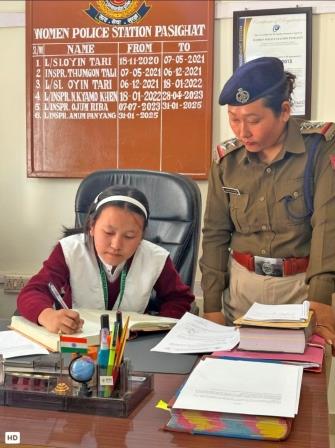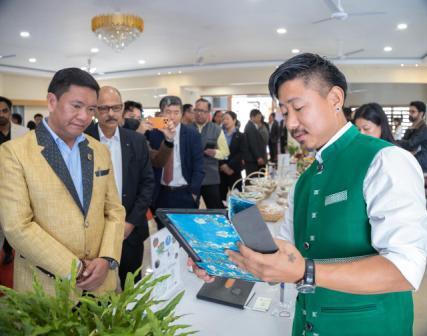-
Sona reviews PMGSY, VVP projects in Itanagar Circle
-
Lok Bhavan celebrates UP Diwas
-
 KGBV student leads WPS Pasighat on National Girl Child Day
KGBV student leads WPS Pasighat on National Girl Child Day
-
Meritorious students felicitated on National Girl Child Day
-
Awareness on POCSO held as part of National Girl Child…
-
Anini certifies 79 Nature Guides on National Tourism Day
-
 Startup success stories reflect potential of state’s youth: CM
Startup success stories reflect potential of state’s youth: CM
-
 Mein participates in vintage Willys Jeep Rally, inaugurates World War…
Mein participates in vintage Willys Jeep Rally, inaugurates World War…
-
DG Assam Rifles visits Khonsa Battalion
-
Governor advises DGP to take firm action on illegal migration
Amid the escalating Covid-19 pandemic in the country when all attention seems to be dragging towards the rising number of daily cases and deaths, the GST collection figures made public on Saturday has shown once more that the road to recovery is far from distinctly visible. If the GST collection factor over a given point of time is a reliable reflection of the state of health of the Indian economy, it can be concluded that the latest figures are bound to cause agony to the planners and policy makers engaged in finding way-outs for revival of the economy badly beaten by the pandemic. The crux that emerges from the myriad of numeric data is also a concrete indication that people are not spending in the manner as it has been during pre-Covid months. It would be better to say that people in majority are compelled to exist with shoestring budgets simply because their income levels have fallen drastically over these four months. A slew of measures have been rolled out under various names and the telling commonality of most all of them is the stress on energising the supply factor of the economy. But, it’s also the centrepiece of any argument regarding economic issues that unless the demand/consumption side is not revived, it’s going to be a one-way traffic and a prospective turnaround will only be prolonged, which, in respect of the current national economy is most unwarranted.
Coming back to the figures released by the Union Finance Ministry, GST collections declined by 14.4 % to Rs 87,422 crore from Rs 90,917 crore in June and cumulatively, it has been a 34.5 % decline during April-July. The frontline reason for initiating unlockdown(s) is to swing back to normal economic activities which have remained under lock and key for an unprecedented period of time. It was also presumed that people will re-commence their usual consumption habits with the onset of the unlock phases. But, factually speaking, this hasn’t been the case as during lockdown periods, sources of income have either been blocked or curtailed, leave alone any genuine prospect of newer employment generation. Free food gains for a three-month period or its extension for further three months or even more can save the intended beneficiaries from starvation, but, for a real revival of the broad-based consuming pattern, unless purchasing power returns to the Indian middle class, the largest among global peers, nothing hopeful should be expected.
The idea of ‘minimum basic income’ which is to put a certain amount of money to the most-needy of the populace at least for a few months has never been paid any heed. But as the ‘realities’ of the Indian economy unfold in rapid succession, it is gradually becoming indispensable. Sooner or later, it has to be brought out from the shelves.

Kenter Joya Riba
(Managing Editor)She is a graduate in Science with post graduation in Sociology from University of Pune. She has been in the media industry for nearly a decade. Before turning to print business, she has been associated with radio and television.
Email: kenterjoyaz@easternsentinel.in / editoreasternsentinel@gmail.com
Phone: 0360-2212313

